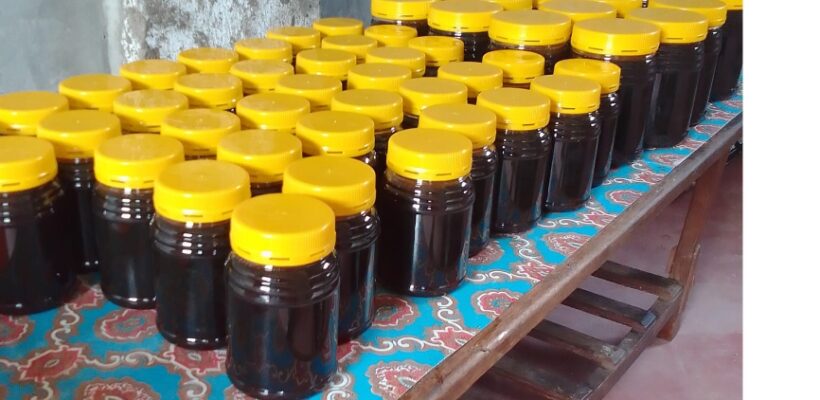Beekeeping is a common addition to the options for making a living in Kenya, and has great potential for supporting sustainable development if well managed. We therefore promote locally appropriate beekeeping practices to enable participants to generate income to enhance their livelihoods, alleviate poverty and improve their quality of life.
Get in touch with us today.
Promoting Sustainable Livelihoods

Beekeeping as a livelihood strategy
Whereas crop pollination is, by far, the most important and profitable of bee services, honey is the most well known and most profitable of the direct products resulting from the efforts of honey bees. There are however, numerous other products that can be derived from beekeeping. These include honey-based products (such as candy), beeswax, pollen (as a supplement), candles, propolis (or bee glue, used in cosmetics), as well as additional bees for sale to other parties. Income generated from such bee-keeping projects can be channeled to other development strategies that are geared toward poverty eradication and promotion of sustainable livelihoods.
- Immense benefits in terms of provision of pollinators, which enhance crop yield. It is estimated that one in every three bites of food we eat is a result of active pollination of plants in which bees play a very important part.
- Honey is a food easily digestible and also a source of natural medicine thus addressing food and nutrition security O The beekeeping industry contributes to the wider rural economy and plays an important part in the economy of arid and semi-arid areas of Kenya, where about 25% of our population live.
- Beekeeping is sustainable and environmentally friendly. It is therefore feasible and a suitable activity where people need to restore their livelihoods or create new opportunities
- Beekeeping is a family level exercise which has some distinct advantages over other agricultural activities. For instance, beekeeping requires very little financial or labour input.
- It is a flexible and gender friendly enterprise which does not compete for resources with other agricultural activities.
- Prosperity through public support for women, youth and other disadvantaged sectors
- Increased demand for bee products creating a wider market access to producers O Enhancing conservation and sustainable use of all our natural resources
- Poverty reduction through creation of jobs within the bee keeping value chain within the bee keeping value chain.

